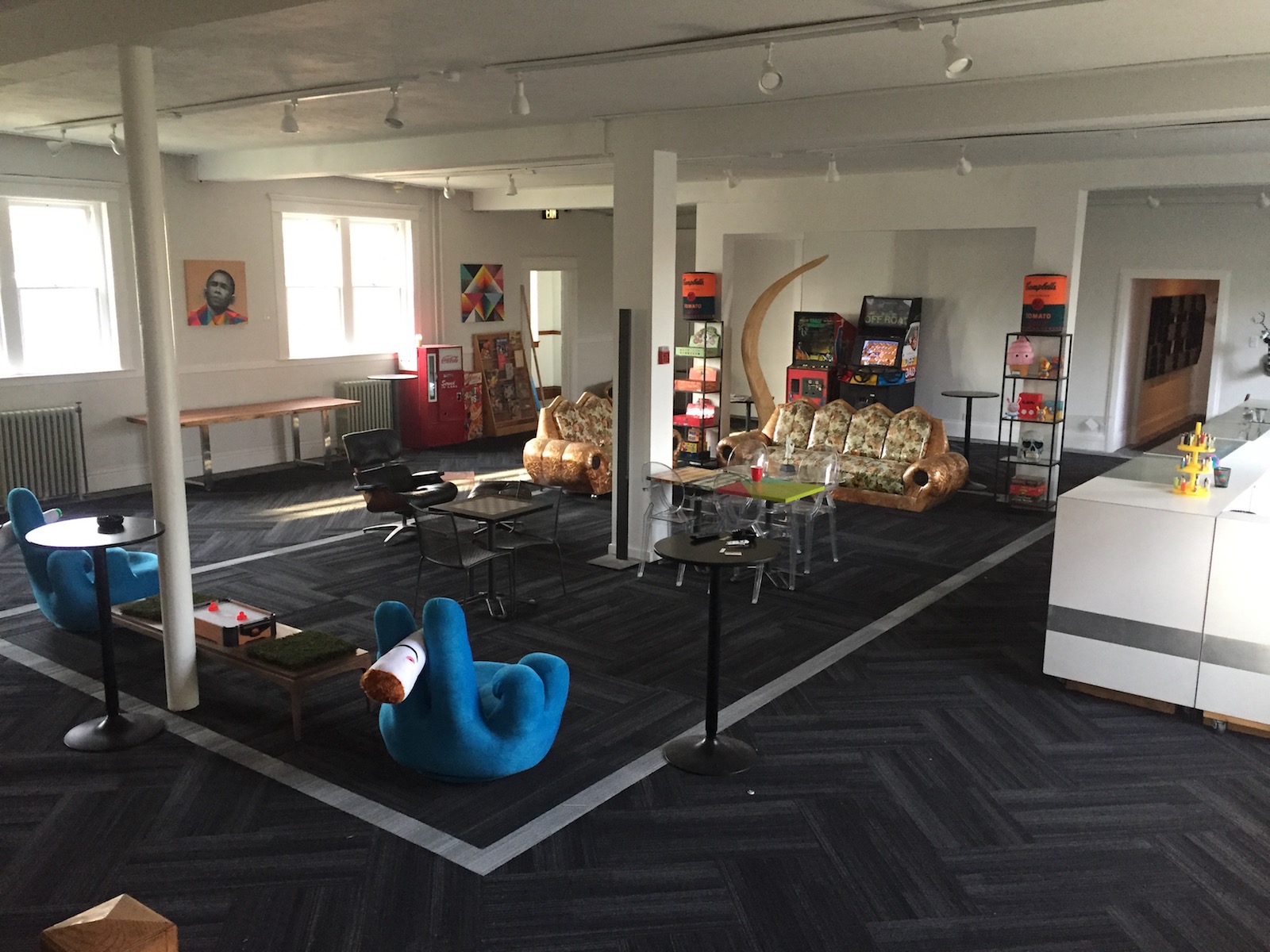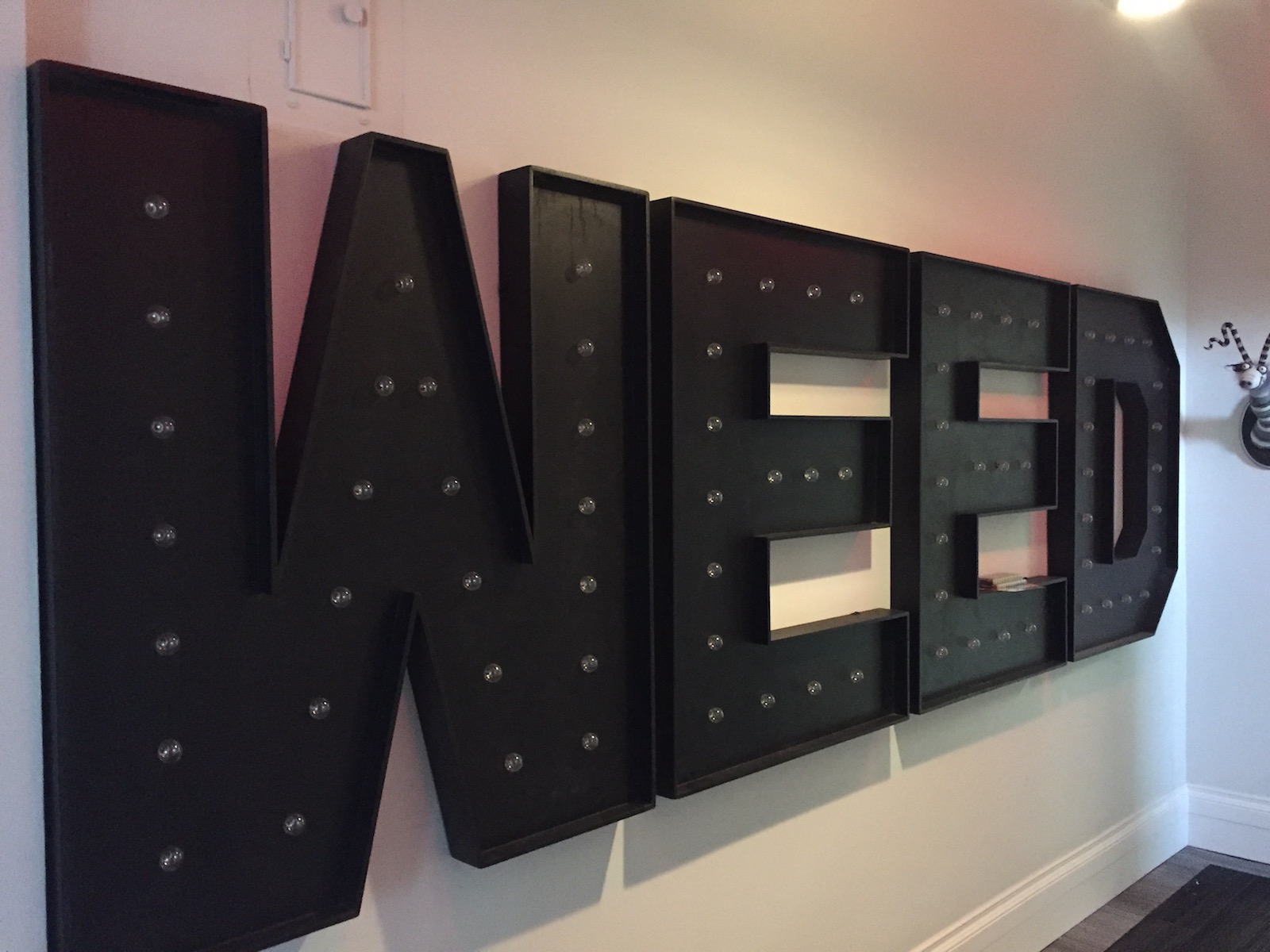The Local newsletter is your free, daily guide to life in Colorado. For locals, by locals.
Denver’s West Wash Park neighborhood might just become ground zero for “Elevationism,” a newly coined religion for all who use marijuana to get closer to their highest selves.
The 113-year-old building at Logan Street and Dakota Avenue, formerly Mt. Calvary Apostolic Church, is now the International Church of Cannabis. The church’s grand re-opening will take place this Thursday, April 20 (naturally). Entrepreneur and one-time Miami mayoral candidate Steve Berke purchased the neighborhood landmark, alongside his parents, after he spotted its for-sale sign after brunching at Lucile’s Creole Cafe during a visit to the Mile High City in 2015. The church then sat empty for about a year.

Berke says he did not initially plan on keeping the 13,000 square-foot, multi-story building as a place of worship. That is, until Elevationism—a loosely interpreted religious belief that claims cannabis use as a sacrament—manifested amongst friends and colleagues in 2016.“People have been using cannabis for spiritual purposes for hundreds, if not thousands, of years,” says Berke. “All we did was give it a name and a place.” An organization named Elevation Ministries subsequently registered as a nonprofit religious organization in Colorado in the fall of last year.
How easy—or hard—it will be for the International Church of Cannabis to become a “spiritual home for those seeking to partake of the cannabis sacrament in peace,” as its mission states, isn’t as tidy as its new, colorful packaging. On the federal level, it would only need to be argued that Elevationism is an authentic religious belief for it to be enshrined by constitutional religious freedom. “If all they’re doing is providing a gathering place where people can worship and consume—and profit isn’t their motive—I think a court could easily find that [Elevationism] is a sincere belief, and that they’re free to practice their religion,” says local attorney Rachel Gillette, who specializes in marijuana law.
But federal law isn’t the church’s chief concern. Religious operations still have to comply with state law, which currently doesn’t allow “open and public” consumption of marijuana under Amendment 64. Denver voters passed Initiative 300 last November, a rule that would allow some businesses to apply for special consumption permitting, but exact rules and implementation remain largely undecided. At least for now, the church will have to maneuver within a changing and murky legal landscape.
Most importantly, the church will have to draw a strict line between behavior at private and public events, according to Berke, who met with the City Attorney’s Office to discuss compliance on Monday afternoon. Activities in which marijuana is used on the premises must be kept “private,” or invite-only. Public gatherings and functions—such as, say, a regular Sunday service—can still be held inside the building, but consumption of cannabis will not be allowed.
Currently, a variety of membership types can be purchased through the church’s Indiegogo page, which is simultaneously attempting to raise funds for replacing a dated boiler and other updates to the space. It’s unclear exactly what membership includes. It’s reasonable to assume most members will be interested in gatherings where open cannabis use is allowed, and since those events are forced to be invite-only, the church will likely have to clarify its memberships fairly soon.
Though there are plenty of potential legal and regulatory issues for the International Church of Cannabis to work out, Wash Park residents have made their concerns crystal-clear. (Full disclosure: I live across the street from the church and, although I didn’t ask my neighbors to speak with me on record, I have heard some grumblings.) Some neighbors felt taken aback by the church’s seemingly sudden arrival. Though the building has been quietly occupied and renovated by church members during the past 10 months, most neighbors weren’t aware of their presence until the “International Church of Cannabis” registered in Google Maps a few weeks ago. But most locals’ questions have more to do with logistics than the concept of a church for pot-smokers. Common concerns include parking, unwanted crowds, strong odors, and general uncertainty over church operations. And some Wash Park West residents simply don’t like the church’s new, semi-psychedelic look.
Berke and the other church founders have been proactive about assuaging neighbors’ concerns. Though Berke does not technically work for Elevation Ministries, he is both the International Church of Cannabis’ landlord and unofficial spokesperson in the wake of the organization’s unexpected media attention. Berke and a selection of the church’s founders—Alec Rubin, Adam Mutchler, Angie Hargot, Steve Berke, Briley Hale, Dave Bogue, and Lee Molloy—held a closed meeting with local residents on Monday night. Berke says the team hopes to have an ongoing conversation with the community moving forward. “Almost all the neighbors just want to know how the church will affect their daily lives,” says Berke. “We really are trying to be good neighbors.”
Though a long-term schedule of services has not been finalized, the International Church of Cannabis’ three-day-long opening celebration is sure to garner local and national attention. The church will host festivities Thursday through Saturday from noon until 10 p.m., though the event is only open to the public from noon until 2 p.m., when the vibe will be part academic programming and part mixer. Starting at 3 p.m. each day, only invitees will be allowed inside the church—so that members can partake in their sacrament. That’s when things get interesting: there will be live music on Thursday; a screening of Square Grouper: The Godfathers of Ganja followed by a panel with director Billy Corben on Friday; and standup comedy by Kyle Grooms and Ramon Rivas II on Saturday.
So if you live nearby and happen to see groups of red-eyed individuals walking home in the dark this weekend, don’t be alarmed—they’re just leaving church.











